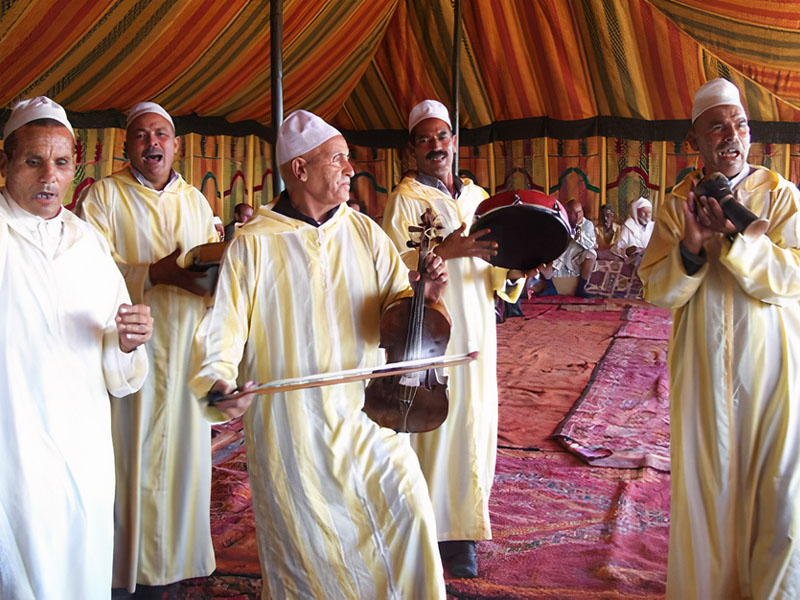Aita and the Collective Memory: The example of the Malali Aita
Issue 51

Mariam Balmahdi, Morocco
Postgraduate Diploma Programme, Department of Arts and Humanities, Mohammed V University
Aita, which means a call, cry or lament in Arabic, is the word used to describe a type of Bedouin music that originates in the Moroccan countryside.
Aita singing is one of the means by which tribes express their needs, so you will hear them celebrating their joys, expressing their feelings, praising or satirising. This type of Moroccan folk singing is one of the oldest forms of expression that reflects a culture’s experiences, perceptions, and interpretations of phenomena. Aita is different from other folklore traditions because it blends vernacular poetic texts and local musical melodies.
Aita singing represents a crucible in which the tribe’s memories and aspirations for the future are stored. This art affects people’s attitudes, customs and rituals.
Aita singing allows the creative singer to merge with their surroundings, because it allows them to express their repressed feelings with ease.
The Malali Aita’s features include:
First: The Malali Aita is one of the most important types of Aita singing. It is characterised by overlapping cultural, historical, ethnic and linguistic factors.
Second: The Malali Aita reflects the aesthetic of the general art of Aita in terms of poems, music and performance.
Third: The rhythm and tone of the Malali Aita are different from other types of Aita, and it is not subject to monotony or the repetition of melodic sentences. Instead, it depends on the diversification of musical denominations, and this amplifies the music’s beauty, lightness and agility.
Fourth: In the verses that we analysed using the historical and descriptive approaches, we find the method of calling or direct address, followed by descriptions of the surroundings or of people’s features. There is an emphasis on lamentation, as we mentioned in the analysis of the ‘Elegy of the Place’. The interrogative style also appears significantly in the poems, as does the narrative discourse.
The texts of the Malali Aita poems have a clear indicative value because their topics derive from the social and political reality of the inhabitants of the Beni Mallal region. A careful reading of and listening to the poems of the Malali Aita or the songs performed by sheikhs and sheikhas reveals rich content from Moroccan folk culture’s oral poetry.







































































